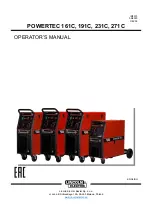
40
Basically the Advanced Methods consists of adding extra
ingredients that dissolve in the wort/must or adding extra water
that has been steeped in the ingredients and then filtered before
adding, to avoid particles blocking the draft tap.
The easiest Advanced technique is to soak hop pellets in a
French coffee press as described in the following pages. This
gives extra hops aroma and flavour to a standard kit.
Another technique is to boil hops for a while to add extra
bitterness.
And the other main technique is to steep crushed specialty
grains and strain them to add extra malt flavours.
A final technique is to add any flavour you want via any method
you want, as long as you don’t add particles to the wort/must
that will block the draft tap and as long as the temperature of
the wort/must when made up to 23 Litres (6 US gallons) is near
25°C (77°F) when the yeast is added.
But as long as you follow the techniques described in the
next few pages and our Advanced Recipes pdf and Excel Tool
on our website, you can make other styles on the BJCP Style
Guidelines (see Appendix 10) from our Standard Kits. This
method we’re employing is known as “Extract plus Grains”
in the USA so any recipe you can find under that title on the
internet will work.
Our Excel Tool enables you to make your own recipes as it
calculates the 5 vital statistics of a brew from the ingredients
entered. The video tutorial of this is also on Vimeo at
vimeo.com/9071894.
Adding a little extra steeped hops and malt “tea” is how
Santiago Aon Ratto won the Gold Medal for his Pilsner at the
Asia Beer Awards in 2012, so it’s definitely something to move
into as you get more brews under your belt.
Good luck and don’t be afraid to experiment.
INTRODUCTION
There is much flexibility for brewing many different beverage in your WilliamsWarn.
After you have tried some or all of the Standard Ingredient Kits you may like to add
a little extra flavour. You can do this quite easily using what we call our Advanced
Methods. In this section we introduce our Advanced Methods, but for more details
please visit our website and the Additional Downloads page. There you can click to
download our Advanced Recipes pdf and Excel Tool and view a video tutorial.
















































